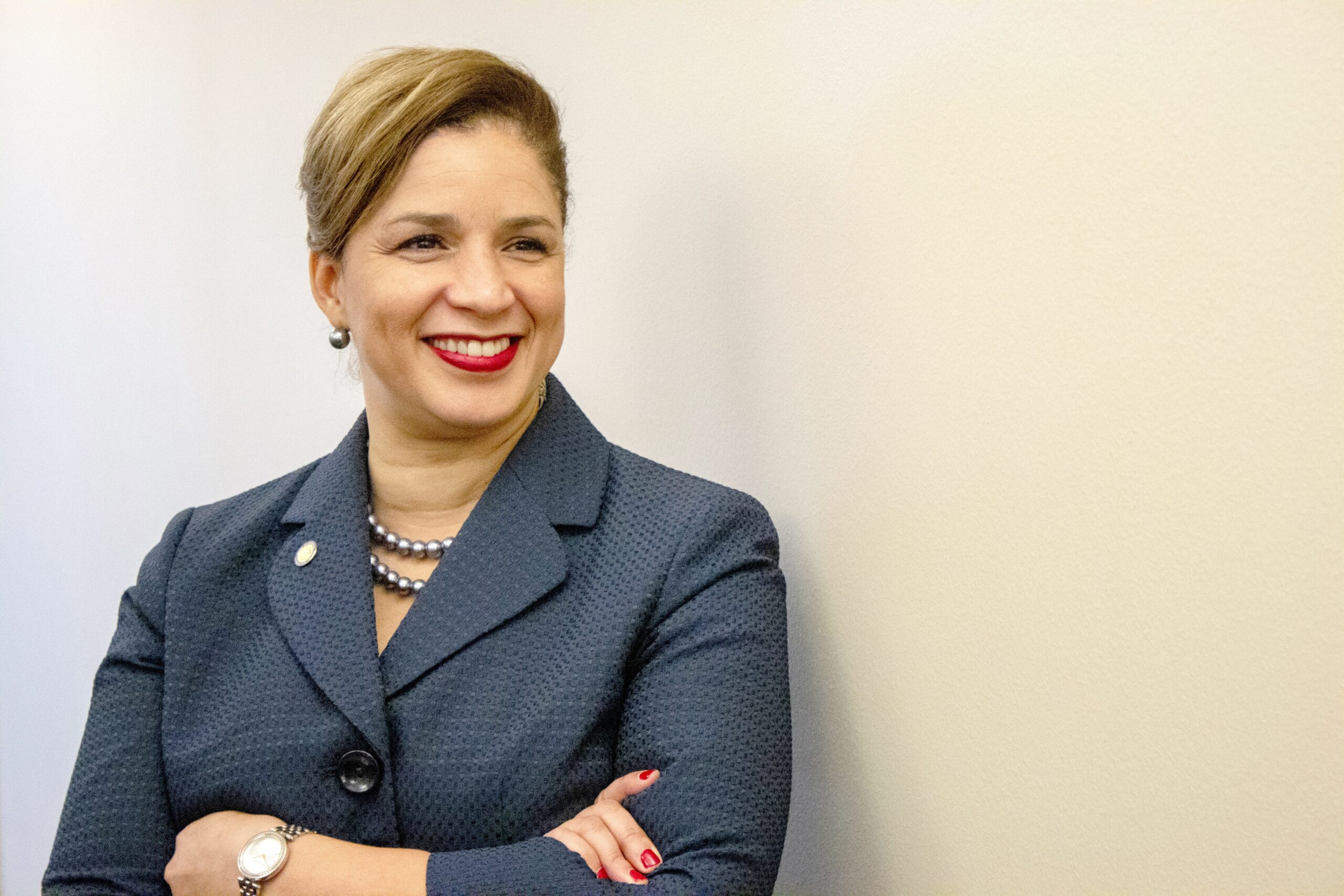Terri Porche Ricks’ path has brought her back to the Louisiana Department of Child and Family Services (DCFS) time and time again.
She started her career as an eligibility determinations examiner in the department, then known as the Department of Social Services, in 1991, where she worked directly with pregnant mothers and children in need. She left the department to attend law school and worked as an attorney, before she returned to the department from 2004 to 2008 as undersecretary under the late Gov. Kathleen Blanco. Eight years later she came back on to serve as the department’s executive counsel before being promoted as Deputy Secretary.
And when the organization faced upheaval in 2022, she was called to take on the department’s top leadership role. A press investigation into the death of multiple children under the department’s watch led to the resignation of then-Secretary Marketa Garner Walters. In December of last year, Ricks was named as her successor.
|
|
|
“The press allowed people to understand that we really had a need,” Ricks says. “It was a calling card for those who really wanted to be a part of the solution to come forward.”
A year in as secretary, Ricks has focused on finding those individuals and staffing up the organization. Chronic understaffing was a major complaint voiced by DCFS workers amid the scrutiny. By November, the department had added 333 full-time employees and reduced its statewide turnover rate.
225 sat down with Ricks to discuss where DCFS stands and what the future looks like. Answers have been edited for clarity and brevity
You’ve worked with children and families for quite some time. What led you to this agency?
I am and was drawn to this department because I love the thought of helping people, honoring them, treating them well and providing a bridge where needed for people to get back on their feet.
What in your past experiences has prepared you for your role today?
Being a front-line worker as my first job, I never forget what it was like to be a direct services worker talking to women, seeing their children and being in a field office. I left that job to go to law school, and as an attorney, this helps me with the myriad and complex problems that we have—whether it’s needing more human capital, the legal complexities of several of our programs or the workforce and development activities. Having a degree in psychology helps me in understanding some of the clients. Ministry training helps me to look inward to understand how I fit into a bigger picture and keep everything family-centered.
What was the first change you wanted to implement when you took over the secretary role?
When I took over, we were reeling from a lot of press that was focusing on some very tragic child deaths. That allowed us to really put a focus on the number of vacancies that we were living with at that time. The first focus was to open up means of communication with our employees and to tackle the vacancies.
What other key changes need to be made within the department?
We’ve opened up avenues for people to bring forth their concerns. We’ve gotten some feedback, paid attention to the legislative auditor’s Child Welfare Job Satisfaction Survey and had LSU help us to do some research about turnover. We’ve taken what we’ve learned and put it back into various things. For example, we now have an employee assistance program. That was rolled out in several different regions to recognize that the DCFS staff needs support for the very difficult work that they do.
These changes are bringing us to a place where staff is hearing, seeing and beginning to believe that we do value them. I’m really trying to say thank you a lot to the staff.
|
|
|
I imagine this job is emotionally tolling. How do you avoid burnout?
I don’t always get it right. But I’m so very blessed to have a very good support system. It includes my faith, my family, the DCFS team and my executive coach.
We are a team that will look each other in the eye and say, ‘You really need to go home.’ Sometimes it’s very, very difficult work. But we must look at the people we’re helping. I do look for incredible stories of triumph and assistance. When I look at the DCFS employees who are sacrificing to do the work, it certainly helps motivate me to continue forward.
Let’s talk about the future. How do you think DCFS should ultimately function?
The future of DCFS is one where we continue to make our values a priority: to treat all people with dignity, compassion and respect, while providing services with integrity. We are working daily to increase the sense of belonging and pride in DCFS and the meaningful work we do for the people of Louisiana. What I envision is slowly coming into view. We have set goals and are already making significant strides toward achieving them.





